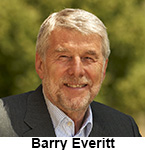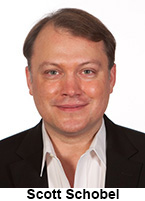Membership/Membership Career Resources/Interview with Barry Everitt, Council Member
Interview with Barry Everitt, Council Member
by Scott Schobel, ACNP Membership Advisory Task Force member
Q: How did you join council?
A: I initially attended ACNP meetings as a guest and speaker and was subsequently elected as a foreign corresponding member, a category that no longer exists. Although I volunteered to join committees, members in my category were not in fact eligible to do so. Then three years ago, I received an email asking if I would stand for election to Council; I said yes and was elected – I think as the first member of Council from outside the US, which is an honor. 
Q: What does council do?
A: It’s the governing body of ACNP and does much of its work through its standing committees (for example, programme, membership, publications, nominations and liaison, which deals with advocacy issues). It also establishes Task Forces to deal with specific issues such as diversity in the membership. Overall it works strategically to ensure the present and future strength of the College, which depends on secure finances – a major area of responsibility for Council – through holding exceptional annual scientific meetings, electing exceptional scientists as members, supporting education and training and advocating for the field on the Hill, a very important role. It also spends a lot of time discussing future venues for the meeting (some of us long to return to San Juan!).
Q: Do you believe that council’s influences or role are misunderstood?
A: Possibly, but I’m not sure why. Some feedback suggests that Council might be detached from the needs of members, perhaps especially young members. But in my experience Council works hard to meet the needs of members of the College. This task will never be finished of course.
If there is some misunderstanding, it may reflect the natural evolution from the smaller College it was to the vibrant, much larger College that it is now. Contemporary science requires rapid change in the way the ACNP operates and my feeling is that it does so transparently and pretty well.
 Q: Have you had an accomplishment that you are most proud of during your tenure on council?
Q: Have you had an accomplishment that you are most proud of during your tenure on council?
A: I don’t think there are eureka moments like that. You’re only a member of Council for 3 years and become a part of ongoing, as well as new, decision-making processes. Just in my brief time I think there has been considerable progress on gender diversity in the College and at its meetings, but that will be a work in progress for some time to come. ACNP is fortunate to have an exceptional Executive office and they are the individuals who ensure continuity and effect Council decisions.
Q: Where do you see the college going? Is there something that needs to be changed?
A: I think the big challenge for the College and therefore for the Council, is to keep neuropsychopharmacology as a discipline up front and central. Regrettably we are at a very difficult moment for the field. We have great science giving us many leads about disease mechanisms and new treatment targets that should enable new medicines, for which there is tremendous unmet need. Yet few pharmaceutical companies are in the business of trying to develop new medications for psychiatric disorders – and it is a very expensive, high-risk undertaking. I think that’s worrying.
While it is right that exciting developments in genetics, functional and connectionist imaging, with powerful optogenetic and chemogenetic tools enabling us to understand behavioural and cognitive processes, this has perhaps led to a feeling that neuropsychopharmacology is an approach whose time has past. I don’t think that’s right and there is enormous potential for bringing new, and re-purposing ‘old’, medications to the clinic, especially in the emerging era of personalized medicine.
Q: So do you think the college might help this state of play?
A: I think it can and it will, by showcasing outstanding science at its meetings, encouraging debate and dialogue, emphasizing the astonishing advances being made and using them to advocate for investment in the treatment of psychiatric illness – both by government and the pharmaceutical industry. I do think the College has a responsibility to do this and I am confident it will.
Mental health patients who have experienced trauma can develop PTSD. During #PTSDAwarenessMonth learn more about the role you can play in identifying, diagnosing, and treating PTSD in your patients: #PTSD #PTSDAwareness
During #PTSDAwarenessMonth help us #BreakTheStigma and raise awareness of PTSD with your patients and community. Download our PTSD materials to learn more: https://adaa.org/sites/default/files/Understanding_PTSD-Patient_Brochure%20Otsuka%202024.pdf #PTSD #PTSDSupport
Dr. Nate Harnett is a recent Associate Member of @ACNPorg, the Director of the Neurobiology of Affective and Traumatic Experiences Laboratory at McLean Hospital, and an Assistant Professor of Psychiatry at Harvard Medical School
http://nathanielharnett.com

